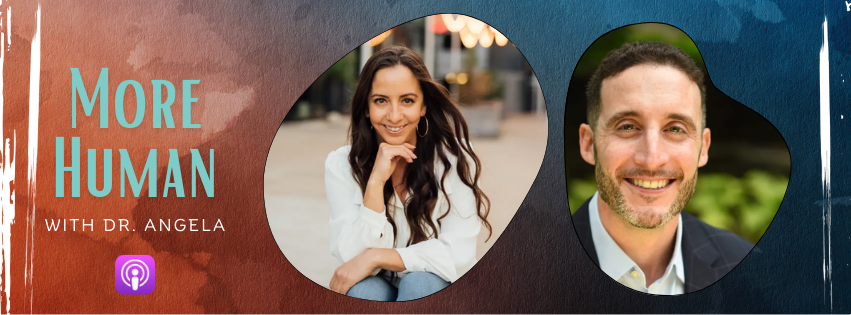America has a loneliness epidemic. How about religious groups as part of the solution?
- Aug 1, 2023
- 4 min read
Updated: Oct 19, 2023
The surgeon general’s 80-page advisory mentions religion only once — as a factor in what exacerbates our isolation from one another.
This article was originally published by the Boston Globe on July 28, 2023,
by Elan Babchuck and Wendy Cadge

Image: In May, US Surgeon General Vivek Murthy declared loneliness an American epidemic. “Millions of people in America are struggling in the shadows," he said, “and that’s not right.”JOHN LOCHER/ASSOCIATED PRESS
From small towns to big cities and everywhere in between, an epidemic of loneliness and isolation is sweeping across the United States. Surgeon General Vivek Murthy named this epidemic in his recent Advisory Report, which calls on groups across the country to come together to reweave the torn social fabric of America. Surprisingly, though, religion — which at one time served as the tie that bound our disparate communities together — appears just once in the 80-page report. And that one mention is part of a list of divisive topics that cause polarization between individuals and communities.
No longer the salve, faith is now the suspect.
Since Alexis de Tocqueville first expressed wonderment, in his 1835 book “Democracy in America,” at the centrality of church life in early American culture, religion has served as one of the chambers of America’s beating heart. The French historian could clearly see how religion contributed to America’s thriving economy, rich culture, and political life.
His words have continued to ring true, especially in times of national tragedy and generational transitions. Unfortunately, the surgeon general’s report fails to note the many times that religion has been a key asset in addressing national health challenges, taking instead a mostly deficit-based approach to religion’s role in the loneliness crisis. Yes, he does invite religious groups to play a part, but he sees their role as no more powerful than that of fitness centers.
Yet in the last two decades we have seen two profoundly important examples of faith networks leading national efforts to address significant health crises.
As the national director of National Baptist Convention’s HOPE Health Initiative, the Rev. Michael Minor mobilizes 31,000 churches around the country to take health- and wellness-related action for their communities and neighborhoods. Known lovingly as “the Southern pastor who banned fried chicken in his church,” Minor has a long history of using the power of the pulpit to address the crises he saw unfolding — whether diabetes, obesity, or lack of access to health care. He created a “No Fry Zone” in his church, set up a walking track around its perimeter, and used his local church network in Mississippi to be a major driver for Affordable Care Act enrollment.
And more recently, faith communities were vital in getting COVID-19 vaccinations into the arms of their parishioners and neighbors, many of whom were vaccine-hesitant or had barriers to access. The Rev. Rubén Ortiz, National Director of Esperanza, a faith-based nonprofit that works with Hispanic communities through education, economic development, and advocacy, was one of a number of outspoken faith leaders in Philadelphia who worked tirelessly to address the vaccine equity and access gaps in communities of color. Thanks to the All Faiths Vaccination Campaign and its 60 participating faith organizations, thousands of individuals around Philadelphia received the life-saving vaccine.
Religion can play a critical role in alleviating the loneliness epidemic. All that is required is that national leaders and faith communities reframe their thinking.
Our political leaders need to take stock of the assets that our nation’s faith communities offer. From new organizations that operate outside houses of worship to well established institutions, faith communities are composed of thick, trusting networks of purpose-driven people, eager to volunteer their time and talent. Many of them also come with large, welcoming buildings ready to house programs that allow neighbors to gather to combat isolation. Let them bring these resources to bear!
Faith communities can answer by opening their eyes, ears, hearts and doors. There is not one village, town, or city where people aren’t suffering from loneliness; while some of them regularly attend services, the majority do not. Look for them. Engage them. Serve them. Point your community’s greatest resources — its people and the care in their hearts — to your community’s greatest needs, and witness how healing happens. Don’t wait for them to come to you.
We are in the midst of interwoven epidemics, and the surgeon general is right to call our attention to loneliness in particular. His recommendations are sound and sorely needed; but we would miss the opportunity to save countless more lives if we ignore the faith communities that have been on the front lines of national health crises for generations.
While this epidemic of loneliness is unprecedented, our approach to solving it doesn’t have to be.
By Elan Babchuck and Wendy Cadge
Rabbi Elan Babchuck serves as the executive vice president of Clal, the National Jewish Center for Learning and Leadership, and founding director of the Glean Network for faith leaders. He is the coauthor of the forthcoming book “Picking Up the Pieces: Leadership after Empire.”
Wendy Cadge is professor of the humanistic social sciences and dean of the Graduate School of Arts & Sciences at Brandeis University. She is also a founder of the Chaplaincy Innovation Lab.



